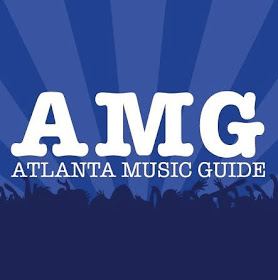Quiet, soulful pop singer and songwriter David Mead began
touring recently in support of his latest and fifth full-length album, Almost
and Always. Mead will play at
Eddie’s Attic on September 17, so AMG caught up with him to ask about the tour,
the album, and what to expect at the show.
Tell me about your newest album, Almost and
Always. It’s your fifth full-length
album – what were you trying to achieve, or what did you do differently, if
anything?
The biggest difference is there’s such sparse
production on this album. Also, a lot of
it is about the end of a relationship, and we’ve taken a very straight forward,
conversational approach musically – kind of leaving it open and bare. Several of the songs were co-written with
Bill DeMain. He’s a really good
lyricist, and he approaches writing differently than I do. Our combining our ideas and techniques
offered a lot more variety of stories and subjects than on my previous records.
What has the collaboration with Bill DeMain done for
your style and thought process as a creator? Would you say he inspired you or refreshed your creativity?
He really did inspire me. He really pushed me to write more about
detail and see the glory in the mundane. Bill can write about anything. For instance, writing a song like “Mohave Desert Phone Booth.” In the short story, it kind of became this
pilgrimage to go to this phone booth in the middle of the Mohave Desert. The number got circulated around the world
and people would call it, and if someone happened to answer, they would have
this random conversation. So Bill wanted
to develop it, and he wrote the song “Mohave Desert Phone Booth” and related
the phone booth to the feelings of being alone and isolation. I wouldn’t write about things like that if
Bill didn’t show me how to see those details in such random encounters as his
finding that story.
So, you’re coming to Atlanta soon, Eddie’s Attic, September 17. You’ve played and recorded there
before. What can we expect of that show,
and what do you like or dislike about the venue?
I’ve been playing there for years, and they always
treat me great; Shalom, the sound guy, is one of the best; they always want to
make performers feel welcome and warm when they come there. It’s the perfect venue for my kind of music;
almost like playing in a living room, which I like. Back to the music being conversational and
very laid back; Eddie’s is that way, like my music. I never know exactly what’s going to happen
because there isn’t too much pressure to prepare too much before because
someone can just shout requests from their seat 10 feet away, you know? It’s hard to try and fit in all my music in
one hour, an hour fifteen, but hopefully we’ll play some old stuff, and new,
and requests if someone wants to hear it.
Not only are you coming to Atlanta, but you’re in
the middle of a full East to Midwest tour.
What are you most eager and most reluctant for on this tour?
Well, let’s see. It’s the first tour I’ve done with a record out in awhile; it’s kind of
exciting to play tours to promote a record. The fall is definitely my favorite time of year, and I always like touring
a bunch of big American cities during the fall, so I really enjoy the travel
part of the tour for sure. I’ve whittled
my touring schedule down to about 15 cities that seem to make sense to go to,
so it’s not too overwhelming. I can go
back and see the people that I know and refresh them with my music.
Let’s go back to the beginning. What is your first musical memory?
Definitely singing with my mom. She’s a really good singer and she’d sing
around the house. Religious songs around
the house.
When did you first know that music is what you want to dedicate your
life to?
It had always been in my life since a really early
age. It became a ferocious hobby around
age 11 or 12, and I started forming bands and stuff around then. I came up in a middle class college
preparatory household, so I guess it got serious when after high school I
didn’t go to college.
You’re a writer.
You write beautiful short stories, which are up for reading on your blog, and of
course, you write music as well. Did you
begin writing before songwriting, or vice versa?
Songwriting first. I always read a lot growing up, probably because we didn’t have a
television growing up. I’m still
struggling with writing short stories, but the three-minute pop songs are a
little easier to wrap my head around. I
hope to become a good writer over the next maybe 20 years or so.
A lot of the songs on this album were written about
very personal instances in your life, namely slipping with your wife and moving
back to Nashville; but you wrote the songs for someone else to sing initially –
a woman. Did you gain something from
writing with the mindset of writing for someone else, or do you think the
tracks ended up less personal?
I think it was beneficial because I was willing to
take more chances and honestly express what was going on. I felt like a ghostwriter, like those ideas
wouldn’t be traced back to me. Once we
made that decision, I like to think that made for a much more honest record. If I left it to my own devices, I probably
would have been more vague and dark.
It’s almost like I tricked myself.
David Mead plays Eddie’s Attic on September 17.
